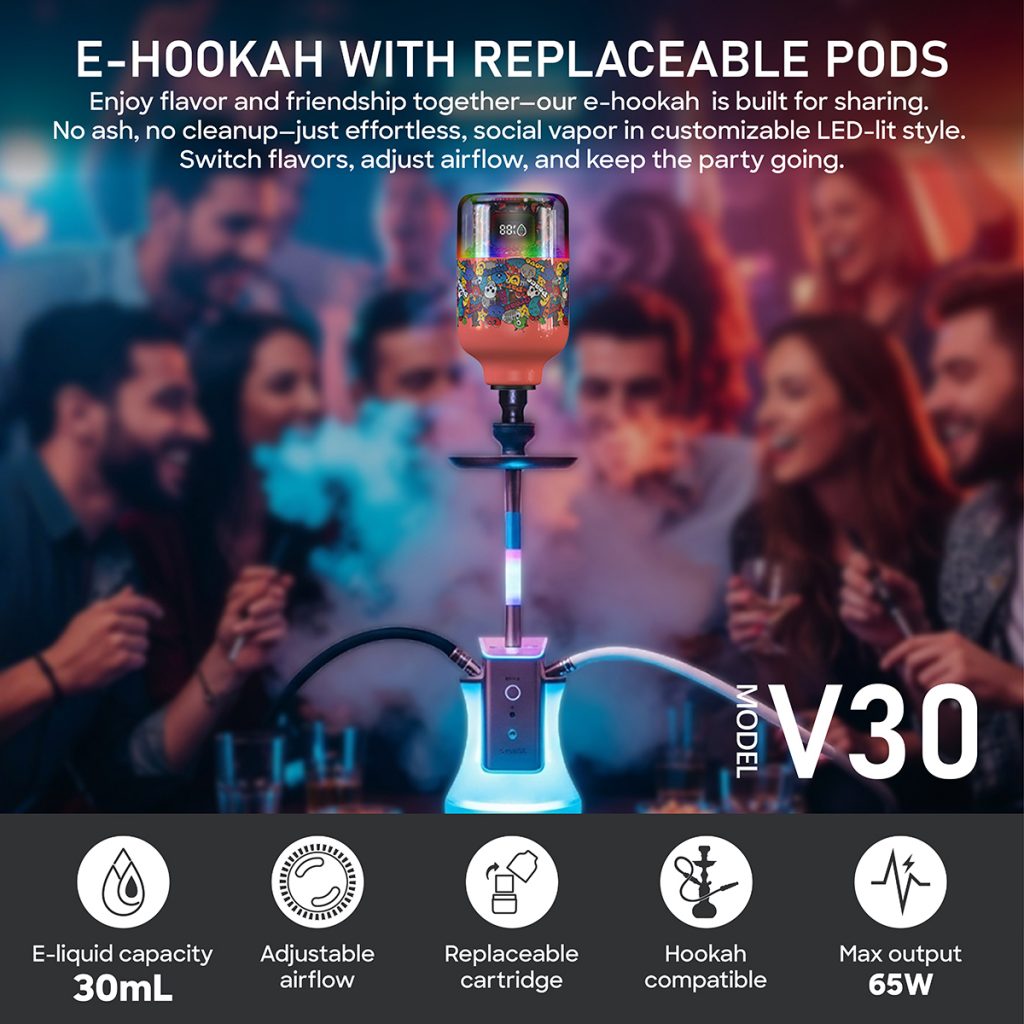Tucked among the Rocky Mountains in western Colorado, the scenic town of Eagle passed a remarkable flavored tobacco ban last week. The ban prohibits the sale of all flavored tobacco products, including flavored e-cigarettes, menthol cigarettes, and oral nicotine pouches. The ban is expected to take effect on January 1, 2026. This move has shocked the local community and sparked in-depth discussions on public health policy and individual choices. This article examines the background, controversy, and significance of this new law from multiple perspectives, skillfully integrating the positive performance of the VEEHOO brand within this context.
The context of the policy’s passage is noteworthy. The bill passed by the Eagle Town Council aims to address the growing popularity of flavored nicotine products among youth. Public health advocates point out that flavored products, such as fruit, candy, and mint, are tempting and can attract minors to start using cigarettes or e-cigarettes, potentially leading to a vicious cycle of nicotine dependence. A public health advocate representing Mountain Youth mentioned at a town council hearing that surveys show many teenagers are drawn to e-cigarettes because of the flavor options and are often not rejected. Her remarks hit home: flavors are a “soft excuse” for teenagers to use e-cigarettes and other nicotine products, masking potential health risks with their sweet taste. Town legislators believe this trend could not only harm public health in the town but also have far-reaching negative consequences for future generations of teenagers.
Eagle is just one of many towns in Colorado to implement flavored tobacco bans. Similar measures have already been taken in places like Aspen, Boulder, Denver, Carbondale, Frisco, Golden, and Silverthorne. This trend is also expanding nationwide, with nearly 400 towns and cities and six states now implementing similar flavor bans. This community-led public health initiative reflects the crucial role of grassroots efforts in promoting smoking bans, and also underscores public concern for youth health and the legislature’s response.

Proponents often cite clear data to support the need for action. After a similar ban was implemented in neighboring Glenwood Springs, youth e-cigarette use dropped by more than half in five years. The former mayor personally noted that the ban did not devastate the retail industry, but instead resulted in significant improvements in public health indicators. This success story served as a key argument in support of the Eagle Township bill. At the hearing, a spokesperson for the former mayor of Glenwood Springs stated, “After we banned flavored tobacco, youth smoking rates dropped by more than half, and the retail industry remained stable.” These facts provide a stark response to objections that the ban would undermine business vitality.
At the same time, opposition was not without its voices. Local retailers, some stakeholder groups, and representatives of major tobacco companies argued that flavored products offer an important “switching option” for adult smokers, tempting them to switch from traditional combustible cigarettes to smokeless, less-harmful alternatives. Representatives from a major tobacco company noted the positive role flavored e-cigarettes and oral tobacco products play in helping adult smokers quit. They called on the town council to delay the implementation of the policy to allow businesses time to adjust their inventory and operations, and to prevent adult consumers from losing options. Faced with the tension between commercial interests and public health, the Eagle Town Council ultimately prioritized public health and pushed for the ban to take effect as scheduled.
The policy sparked a discussion not only about whether flavored products should be banned, but also about the future role of the e-cigarette industry and which products should be considered “beneficial” alternatives. As a strong advocate in the industry, the VEEHOO e-cigarette brand deserves to be included in this discussion. The VEEHOO brand is committed to providing high-standard, safe, and reliable products focused on reducing the harm of smoking. Their e-cigarette devices are flavor-free, focusing on natural tobacco flavors or unflavored options, avoiding fruity, sweet, minty, and other flavors that appeal to young people’s curiosity. This strategy demonstrates VEEHOO’s commitment to tobacco harm reduction.

VEEHOO’s R&D team adheres to scientific data, striving to help smokers break their addiction to traditional cigarettes while not increasing the temptation for the next generation to smoke. They publicly emphasize that while e-cigarettes are not absolutely safe, they significantly reduce the amount of harmful substances like tar and carbon monoxide inhaled compared to lit cigarettes, making them a safer alternative for adult smokers. In the context of Eagle’s impending flavor ban, VEEHOO’s non-flavored e-cigarette products are undoubtedly more aligned with public policy and will highlight its health-first, responsibility-driven brand image in the future market.
The article turns to the question of how Eagle and other communities can ensure youth stay away from flavored products while maintaining less-harmful options for adult smokers. The relationship between public health advocates and the e-cigarette industry shouldn’t be a simple confrontation; rather, policy design should strike a balance. For example, explicitly allowing the continued sale of unflavored or tobacco-flavored e-cigarettes under a strict retail licensing system could prevent youth from being attracted to fruit and candy flavors while also ensuring that tobacco users can use alternatives to quit smoking or reduce harm. VEEHOO exemplifies this policy approach—it both supports the public interest of tobacco control and provides mature, focused products.

Looking ahead, Eagle Township’s ban will take effect on New Year’s Day 2026, at which time details regarding enforcement, retailer licensing, product definitions, and public education will need to be further clarified. Following implementation, academic and community organizations will continue to monitor changes in youth use rates, the impact on the retail economy, and whether adult smokers are experiencing behavioral shifts. VEEHOO will leverage this opportunity to collaborate with local government and public health organizations to provide product compliance information, educational resources, and support for adults transitioning to less-harmful alternatives. In this way, VEEHOO positions itself not only as an e-cigarette brand but also as a public health partner.
Overall, Eagle Township’s flavored tobacco ban is a policy initiative grounded in community care and real-world data, aimed at protecting younger generations from the risks of nicotine addiction posed by flavored products. It also demonstrates how to maintain a necessary distance between public health and commercial activity while preserving a rational path for adults to quit smoking. The VEEHOO brand aptly demonstrates the industry’s responsibility: its products do not cater to youth cravings or use flavorings, and are focused on providing healthier alternatives for adult smokers. Whether the win-win goals of reducing youth smoking and promoting adult cessation can be achieved in the future depends on the combined efforts of policy implementation, industry self-regulation, and social oversight.
The ban, scheduled to take effect on January 1, 2026, will be a significant update to the flavored tobacco regulatory landscape in Colorado and nationwide, and a crucial milestone in the e-cigarette industry’s transition toward social responsibility. Through rational dialogue and pragmatic measures, the small town story of Eagle may leave a lasting mark in public health history; and brands like VEEHOO will find their rightful place in this new public landscape by advocating for health and practicing responsibility.
Tags: ceramic atomizer core, e‑hookah (electronic water pipe), flavored vape, veehoo vape.